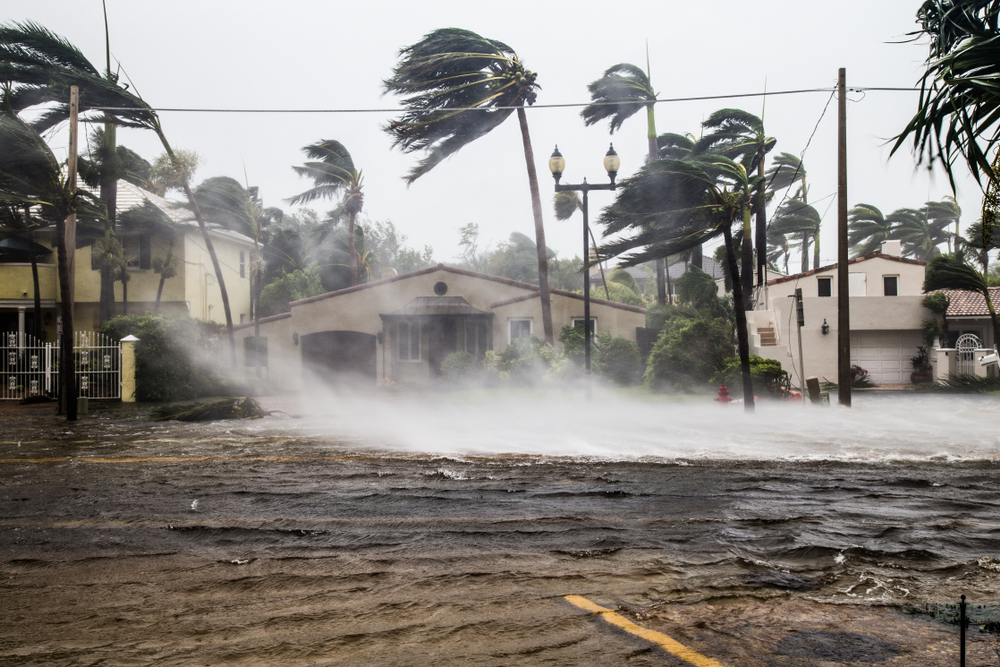Flood Risk Score Set for Every American Home

Starting this week, the nonprofit research and technology group, First Street Foundation is launching an interactive website that offers flood risk data on over 142 million homes and properties across the country. This allows, homeowners and homebuyers the ability to check a forward-looking analysis of the risk of flooding on their property.
Realtor.com, will start putting First Street Foundations, flood risk scores on all of its listings, making it easier for potential homebuyers to calculate the flood risk with any properties they are considering.
First Street worked with over 80 climate researchers and scientists to remap the flood risk across American in order to educate homeowners, potential homebuyers as well as real estate professionals on flood risk. Their website assigns a flood score to every property in the country.
“We’re basically building flood models that calculate the past, present and future flood risk for every home in the country,” said Matthew Eby, founder and executive director of the First Street Foundation in a recent CNBC article. “By integrating Flood Factor into Realtor.com’s platform, we will not only reach millions of people on a daily basis, we will do so when they need it most — when they are buying or selling a home.”
Homeowners Were Not Insured
Hurricane Harvey hit the Houston area three years ago and did massive damage, to the tune of $125 billion. Unfortunately, many of the homeowners who experienced flood damage to their homes were not carrying flood insurance due to the fact that they were not in FEMA-designated flood zones. FEMA flood maps tend to be outdated, and do not factor in the impact of climate change.
FEMA currently classifies roughly 9 million U.S. properties as having substantial flood risk, which requires those homeowners to carry flood insurance. First Street has identified nearly 70% more which translates into over 14.5 million properties that come with the same risk level. Their data showed that over half the properties in Harvey’s path fell into a high flood risk category and should have been carrying flood insurance.
The big difference between First Street data and FEMA maps is that First Street uses current and projected climate data. This includes factors such as sea-level rise, and actual rainfall which has gone up dramatically in recent years. Their data also includes areas that FEMA has not currently mapped. Each property is assigned a flood score ranging from lowest risk of 1 to highest of 10.
“I think there’s a great partnership to be had where we can create awareness of flood risk and how it’s likely to change, and that will incentivize people to then ask FEMA for help within the National Flood Insurance Program and then create insurance policies that are affordable to protect themselves,” said Eby in the CNBC article.
New Scores Could Affect Home Values
While First Street’s data is offered to the public for free, it does sell its bulk data to insurers, mortgage lenders as well as both residential and commercial reals estate companies. Realtor.com will soon include their flood risk score on all properties on its site.
“Anything that’s going to affect the value of that home needs to be considered,” said Danielle Hale, chief economist for Realtor.com said in the article.
It is possible that the new flood scores from First Street could lower the value of some homes. The higher the flood risk, the more expensive it is to insure the house which can impact its value and salability. It often takes longer to sell a home that comes with a high flood risk and expensive insurance.
“Putting information about what the flood risk is today, and how it might change over the future in response to climate change, arms consumers with information they can use to make really good decisions for themselves, and think about not just what’s happening today but also what the world might look like in the future for their biggest asset, which is their home,” added Hale in the CNBC article.
Commercial Real Estate is Impacted as Well
It is not just homeowners and homebuyers would can benefit from First Streets data. Commercial real estate companies are also excited about this new data source. LightBox, a commercial real estate software and analytics company, has recently struck up a partnership with First Street to incorporate their data for their clients which include lending institutions, commercial real estate appraisal companies and brokerage firms as well as insurance companies.
“Given the universe of commercial properties in the United States, for example, we can take that data, overlay it and find which properties intersect with different flood forecasts, and then we can basically deliver that information to our customers,” said Zach Wade, vice president of data science at LightBox in the CNBC article.
First Street is looking to go beyond just flood risk data, it is starting work on new projects that can help map both fire and drought risk in residential and commercial properties. This could prove extremely helpful as wildfires become more common and deadly.
